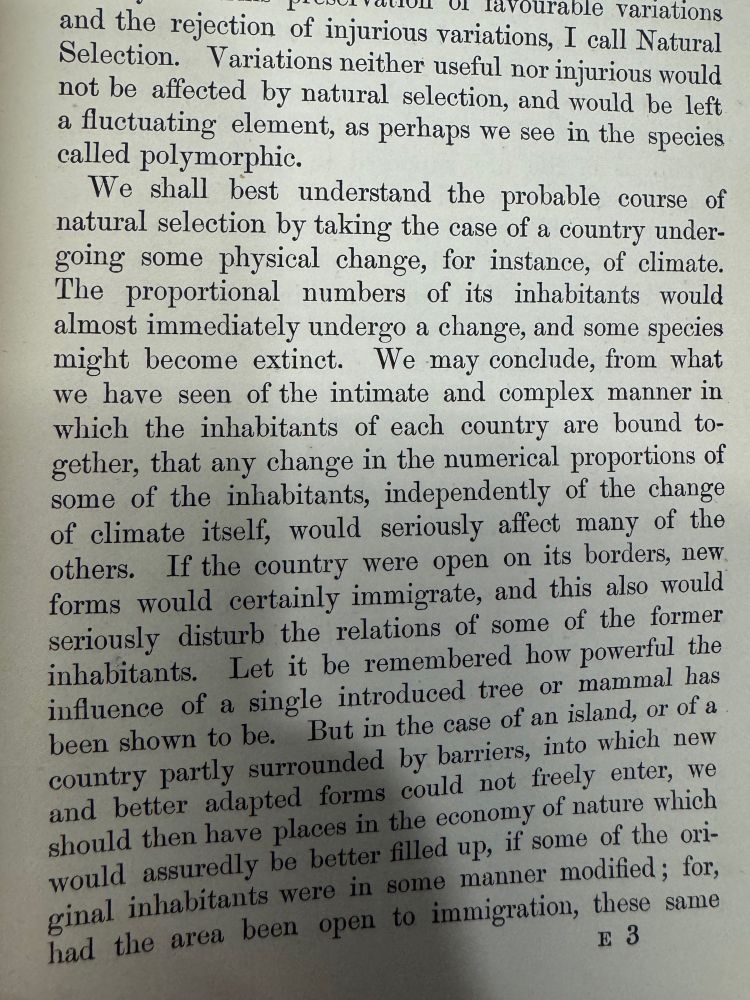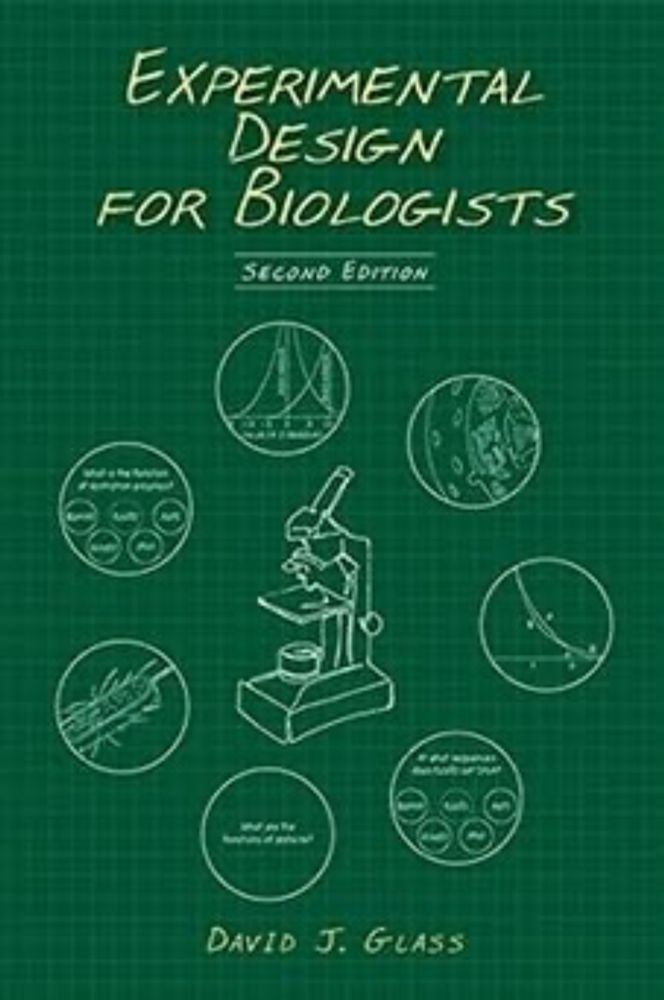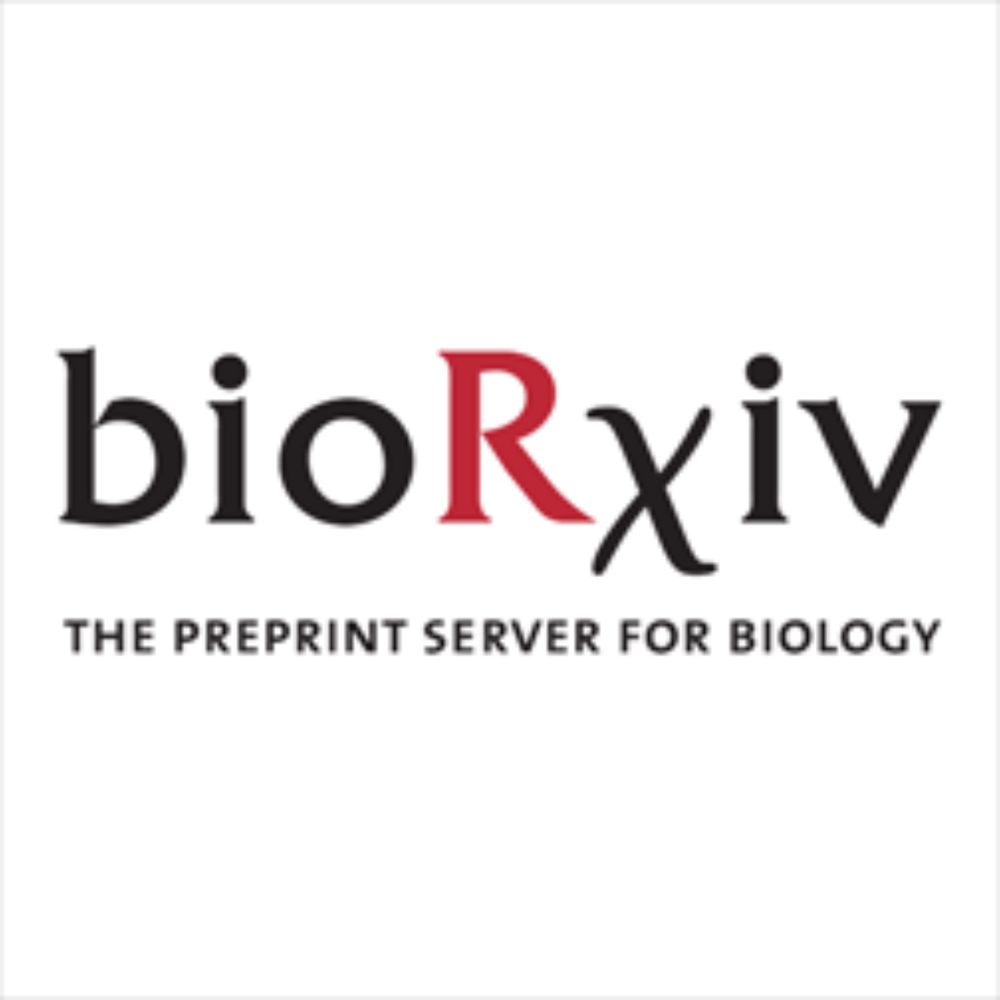Popper was just repeating/updating David Hume... and neither has been particularly helpful given how science is actually performed. The most influential writer on the conduct of science was probably Francis Bacon.
10.01.2025 21:46 — 👍 4 🔁 0 💬 1 📌 0
May all the reported results published in 2024 be found to be reproducible in 2025.
01.01.2025 02:21 — 👍 5 🔁 0 💬 0 📌 0
Also, only now, with advanced machine learning tools, are we seeing that there are problems involving doctored data in decade-old (and decades-old) manuscripts. So hopefully we can point this out to students and PIs, warning them of consequences to come - loss of reputation and thus funding.
29.12.2024 16:34 — 👍 1 🔁 0 💬 0 📌 0
Now that AI is prevalent, it should be possible to determine after a few years if a paper has held up or whether there are significant papers contradicting it - and thereby develop a metric of reliability. Not sure if such a thing would work but that may be becoming possible.
29.12.2024 16:33 — 👍 1 🔁 0 💬 0 📌 0
A p value <0.05 does not mean there's a 95% chance your data will repeat. It means the probability you failed to falsify your hypothesis when your hypothesis was false is <5%. And even that claim is only accurate if the N accounts for the variability of the effect given the effect-size desired.
28.12.2024 15:23 — 👍 4 🔁 0 💬 0 📌 0
The most commonly used "frequentist" statistics, such as t tests, ANOVAs etc, fail to give you a probability that your data will repeat. The closest a frequentist comes to this is with a "confidence interval." The best way to get to probability is with Bayesian approaches.
28.12.2024 15:08 — 👍 2 🔁 0 💬 0 📌 0
If your published dataset does not match the actual full dataset from an experiment, you have some explaining to do.
There are valid reasons to reject data; you need to list those and justify them. It's not ok to reject data that simply fails to align with your hopes & dreams.
28.12.2024 13:59 — 👍 6 🔁 1 💬 0 📌 0
The problem with much of what gets published is that the results claimed are not predictive of what others might find upon repetition.
The main reasons: lack of reagent validation; lack of a large enough N to capture variability of the effect; cherry-picking "desired" results.
28.12.2024 13:09 — 👍 3 🔁 1 💬 1 📌 0
Your data is a testament to what happened when you performed an experiment.
Your job as a scientist is to determine if that data is predictive as to what will happen the next time the experiment is done - and to what degree (what probability) that prediction is accurate.
28.12.2024 13:09 — 👍 2 🔁 0 💬 0 📌 0
There’s an online iBiology course called ‘Let’s Experiment’, plus books by @steveroyle.bsky.social & @davidjglassmd.bsky.social ‘The Digital Cell’ & ‘Experimental Design for Biologists’ which I found really useful
04.12.2024 18:29 — 👍 4 🔁 1 💬 1 📌 0
If you add neural agrin to a muscle cell, it's sufficient to induce NMJ formation. Without agrin, there is no junction. So we say agrin is necessary and sufficient for that effect.
But agrin does nothing to a fibroblast, because it needs its receptors. So the context matters.
01.12.2024 16:48 — 👍 0 🔁 0 💬 0 📌 0
If you knock out the receptor MuSK you eliminate neuromuscular junction formation.
Therefore MuSK is necessary. However, if you add MuSK and its ligand agrin to a fibroblast, you won't get signaling, because you need the co-receptor LRP4.
So MuSK is necessary but not sufficient.
01.12.2024 16:48 — 👍 2 🔁 0 💬 0 📌 0
Biology is messy - because there are often signaling networks rather than linear pathways.
01.12.2024 16:00 — 👍 3 🔁 1 💬 0 📌 0
There are examples of being neither necessary nor sufficient, but still being causal:
For mTORC1 signaling, Akt activation and amino acid activation are both causal, but neither may be sufficient. In many settings you don't need Akt, but it still can cause mTORC1 activation.
01.12.2024 16:00 — 👍 0 🔁 0 💬 0 📌 0
What's the most convincing way to prove causation, after you've shown correlation?
In biology, it's to show necessity. For example, if you want to ask if X causes Y, you knock out X and see if Y is decreased, or stops happening.
01.12.2024 13:43 — 👍 3 🔁 1 💬 0 📌 0
Also, there are many examples where X is causal of Y but only if Z exists.
Here we say X is necessary for Y but not sufficient to cause Y.
In these instances X and Y may only be correlated when Z exists.
30.11.2024 13:23 — 👍 2 🔁 0 💬 0 📌 0
Correlation does imply causation - it just doesn't prove it.
If X causes Y then X has to be correlated with Y.
It's just that there are plenty of instances where X is correlated with Y but has nothing to do with Y.
30.11.2024 12:52 — 👍 3 🔁 0 💬 2 📌 0

I was reading Charles Darwin's Origin of the Species. I didn't expect the example he gave, from back in 1859, of a change which could cause species extinction: climate change.
27.11.2024 02:14 — 👍 7 🔁 0 💬 1 📌 0
Can we stop using the 6 minute walk test, and the stair climb test? These very short, motivation-based exercises have killed more muscle drugs than I care to mention.
How about using modern 24-hour monitoring devices -like your smart watch to get more objective measurements?
20.11.2024 02:04 — 👍 1 🔁 0 💬 0 📌 0
Grad school should be like Med school - it should teach students how to do their jobs as scientists. Failing to teach them experimental design and statistics is criminal.
They don't choose their projects, so judging them on the success of their projects makes no sense.
13.11.2024 23:40 — 👍 2 🔁 0 💬 0 📌 0
Biomedical scientist, principal investigator, naonatal mitochondrial diseases. Leisure: country house, gardening, DIY, dog, reading non-fiction, baking. I post about work, politics and leisure. Helsinki 🇫🇮🏳️🌈☮️
https://orcid.org/0000-0003-3773-7025
Professor of Neuromuscular & Skeletal Disorders, Keele University. I research pathologies and new treatments in rare neuromuscular & skeletal disorders.
www.thebowermanlab.com
Director: Muscle Health Research Centre
Professor: muscle disorders and the metabolic basis of muscle fitness. Translating mitochondrial bioenergetics and redox biology to health/disease
http://health.yorku.ca/health-profiles/index.php?mid=1068349
Associate Professor at the University of Ottawa Canada studying skeletal muscle stem cells in development and disease.
https://soleimanilab.ca/
I am about #gratitude as I get deeper into my next 50 yrs. Follow me to take this journey together. Married to @probalancetv.bsky.social. I prefer comments instead of DMs. Live in Houston w/ time in Puerto Vallarta & San Francisco Bay Area. #GenX #NYUDad
DNA replication, repair, genomic integrity, cancer, and aging at Drexel Univ.
I fly fish a lot, but not really trying to catch fish.
I drive a lot for my kids’ sports, but fish and hike locally.
I like beer a lot, but I am a scientist and educator.
🧠PhD student at Mayo Clinic
Hello everyone! Welcome to the official Bluesky account for the Rudnicki Lab. We study the biology of skeletal muscle stem cells 🔬🧫🧬 | Ottawa, ON, Canada 🇨🇦
@ AFAR - Supporting aging research
Accredited Researcher l Director of Research at Trust Impact l Chair at Manchester Young Lives & Trustee at the YMCA l Masters athlete for England.
I help charities measure the important stuff
https://linktr.ee/ryanmiemczyk
Research in molecular biology, pharmacology, cancer therapies, NIH grants, #aging, #mitochondria ❤️ 🧪 Science, sports, NASA 🚀🌎🌊⚾️ Cal, Opinions mine
Small covid conscious senior care company striving to keep our golden years golden
PhDing in Psychology at @stir.ac.uk
Neuronal dynamics in Parkinson’s disease
Former Medical/ AI engineer
realtime software engineer, space buff, shutterbug, past JET ESL ALT near Hiroshima, thinks of Tucson as home. Ham callsign W7TAD.
Parker, CO
#ispace employee, opinions my own
Mastodon: tad.me/@tad
Twitter: twitter.com/tadm
Keybase: keybase.io/tadm
I’m a PhD cellular & molecular biologist turned science writer, here to learn and share good scicomm and social knowledge.
I’m also an empathetic human, feminist, wife, mother, and geek. Repost does not = endorsement. Opinions are my own. (She/her)
Associate Professor | Scientist | Metabolism | Exercise | Skeletal Muscle | Nutrition | Health Outcomes | @EzzieJ on the former bird site
Translational genetics of cardio/metabolic disease @regeneron. Brooklyn. Genetic Epidemiology. This is my wall of stickies.
Chemical Biology Group Leader @ Cleveland Clinic Center for Therapeutics Discovery (C3TD). PhD from Structural Genomics Consortium @ University of Oxford. BS/BA University of Oklahoma. Julie's worse half. Thoughts are my own, not my employer’s.
#Duke #UCSD Alum; Recovering Academic; Research IT
@jacksonlab.bsky.social; core dev @napari.fosstodon.org.ap.brid.gy


